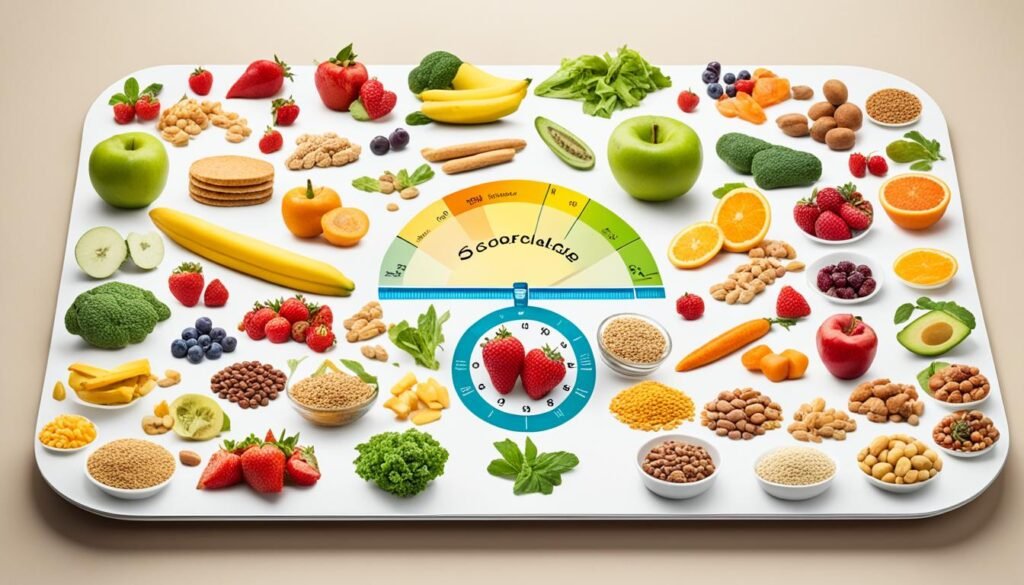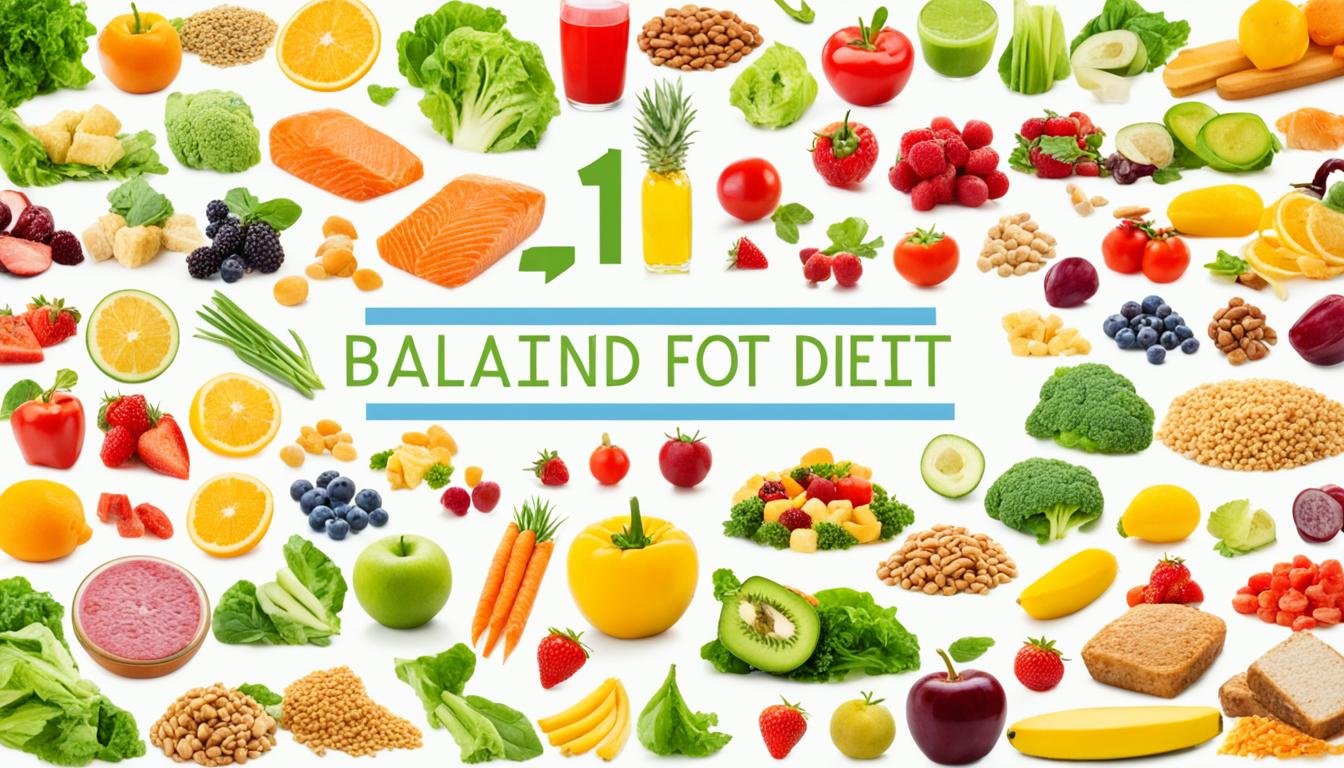What is the 12 diet rule?
Standing on the scale, my heart sank. The numbers showed the hard truth about my weight. I’d been trying different diets for years. Each one left me feeling upset and hopeless. Then, I found the 12 diet rule. This simple method can change how you eat and boost your health.
The 12 diet rule is a type of intermittent fasting. You fast for 12 hours a day and eat in the other 12 hours. It brings many benefits like weight loss, better control over blood sugar, and a healthier heart. What’s cool is that the fasting part includes your sleep time, so it’s easy to do without much change to your day.
As you start this journey, you’ll see how the 12 diet rule can help you get healthier. Let’s dive into this amazing approach and find out how it can make a big difference in your life and health.
Key Takeaways:
- The 12 diet rule is a simple and flexible approach to healthy eating that involves fasting for 12 hours each day and consuming all meals within a 12-hour window.
- This form of intermittent fasting has been shown to offer a range of potential benefits, including weight loss, improved blood sugar control, and enhanced heart health.
- The 12-hour fasting period typically includes the time you spend sleeping, making the 12 diet rule a convenient and sustainable way to improve your eating habits.
- By embracing the 12 diet rule, you can take control of your health and well-being, one step at a time.
- The 12 diet rule can be a transformative approach to weight loss and overall health, empowering you to achieve your goals in a manageable and sustainable way.
Understanding the 12-Hour Intermittent Fasting Schedule
The 12-hour intermittent fasting schedule lets you have your meals and snacks within 12 hours a day. Then you fast for the next 12 hours. For example, you might eat from 8 AM to 8 PM and then not eat until the next 8 AM. This fasting window often falls during sleep time, which makes it easy to follow.
The Basics of 12-Hour Intermittent Fasting
With 12-hour intermittent fasting, you pick a 12-hour time frame to eat. It could be from 7 AM to 7 PM, 9 AM to 9 PM, or even 12 PM to 12 AM. The goal is to consume food within 12 hours and then fast for the other 12. Try different eating times to see what fits your life best.
Choosing Your Eating and Fasting Windows
The main perk of 12-hour fasting is that it’s easy to blend into your day. It works well with your daily routine. This way, you get to enjoy the benefits without too much disruption.
What is the 12 Diet Rule?
The 12 diet rule is a simple way to practice intermittent fasting. It means you eat only within a 12-hour window. Then, you fast for the next 12 hours. This method shows it can help with weight loss, keep your blood sugar in check, and boost heart health. It’s pretty easy to do and can fit into any lifestyle.
This eating and fasting pattern helps you eat fewer calories. That may lead to managing your weight better and improving your health. You can pick the 12-hour period that suits you best. For example, you might eat from 8 AM to 8 PM.
Adding the 12 diet rule to your daily life can greatly benefit your health. Combine it with a balanced, healthy diet for even better results. You might see changes in your weight, blood sugar, and heart health. It’s all about taking charge of your well-being.

Benefits of the 12-Hour Intermittent Fasting
The 12-hour intermittent fasting plan can help with weight loss. When you eat only within a 12-hour period, you could end up eating less. This can create a calorie deficit, leading to fat loss. Also, the fasting may push your body into ketosis. In this state, your body burns its fat stores for energy, aiding in weight loss.
Improved Blood Sugar Control
Studies show that intermittent fasting can better blood sugar control and insulin sensitivity. Taking a break from eating can help stabilize blood sugar and cut type 2 diabetes risk. This is great news for those struggling with weight or prediabetes.
Increased Heart Health
Intermittent fasting on a 12-hour schedule is good for the heart. It can lower blood pressure, triglycerides, and cholesterol. This reduces the chances of heart disease and its issues, especially for overweight folks.
Tips for Successful 12-Hour Intermittent Fasting
Hydration is key when you’re on a 12-hour fasting plan. It’s important to drink lots of water. Also, enjoy unsweetened tea or black coffee. These drinks will keep you feeling full, lessen headaches, and keep you energized while fasting. Make sure to drink water all day, even more when you’re fasting.
Plan Your Meals
Planning your meals is essential for a successful 12-hour fasting experience. Choose foods that are rich in nutrients. Options like fruits, vegetables, whole grains, lean proteins, and good fats are great. They will help keep you full and meet your body’s needs during fasting times.
Listen to Your Body
It’s vital to pay attention to how your body reacts during a 12-hour fast. If you feel very hungry, tired, or unwell, it might be a sign to change something. You could try adjusting when you fast, or talk to a doctor. Everyone’s body is different, so it’s crucial to find what fasting routine suits you best.

Conclusion
The 12 diet rule, also known as 12-hour intermittent fasting, makes eating healthily easier. It helps you lose weight, control your blood sugar, and improve your heart health. By eating within a 12-hour window and fasting for the other 12, you consume fewer calories. This boosts your body’s ability to burn fat and betters your well-being.
This method is easy to follow and puts a focus on eating whole, nutritious foods. The 12 diet rule can become a part of your daily life. It helps you meet your health goals, like losing weight, controlling your blood sugar, or bettering your heart.
Adopting the 12 diet rule can be a big step in improving your health. It matches your personal lifestyle and preferences well. Enjoy the freedom and benefits it gives, and start working towards losing weight and being healthier.






